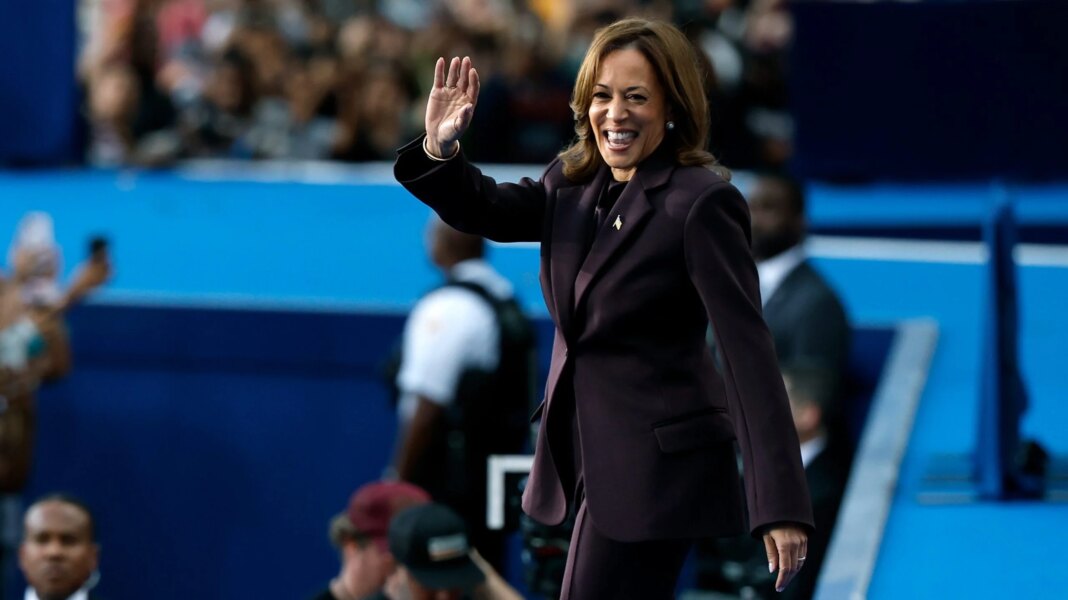A Year After Kamala Harris’s 2024 Presidential Bid: Reflection and Resilience
It has been one year since Kamala Harris stepped off the campaign trail with a heavy heart after losing her bid to become America’s first female president, as well as the first Black and South Asian woman in the highest office. The stunning loss to Donald Trump left many Democratic voters, particularly Black women—who campaigned vigorously for Harris—feeling devastated and disheartened.
Voices of Disappointment and Determination
LaTosha Brown, co-founder of Black Voters Matter, expressed the palpable sadness that swept through the community. “I was so sad… I wanted Vice President Kamala Harris to win, but I also knew what was at stake,” she reflected. The implications of this election weighed heavily, not just as a personal setback but as a broader signal of the challenges faced by Black communities across America. Brown highlighted the resulting “economic avalanche” and the “eroding of democracy,” emphasizing the ongoing attacks on Black representation that have arisen post-election.
Political analyst Reecie Colbert echoed this sentiment, calling Trump’s re-election “devastating.” She recounted her optimism from the first round of Trump’s presidency, wondering why America would again choose “a degenerate in chief” over “an exceptionally qualified woman.”
Resurgence of Hope Among Black Women
Despite the disappointment from the previous year, a renewed sense of hope emerged following the 2025 general elections. Major and historic wins for Black female candidates lit up headlines as cities like Detroit, Albany, and Syracuse elected their first-ever Black female mayors. These victories reinforce the idea that Black women are not only viable candidates but also pivotal contributors to the Democratic Party.
As Donna Brazile, a seasoned Democratic strategist, noted: “Kamala Harris famously said: ‘I may be the first, but I am not going to be the last.’” While she may not have secured the White House, her candidacy has laid the groundwork for future generations of women and marginalized groups aiming for leadership roles.
Brazile emphasized the importance of creating a political environment where diversity is not an exception but a norm. She urged ongoing cultural change and persistence in campaign efforts to achieve equitable representation.
The Toll of Economic Challenges on Black Women
However, issues still loom large for Black communities, particularly concerning economic hardships influenced by President Trump’s policies. A study from The Highland Project noted a troubling reality: 88% of Black women believed the economy was worsening, with half acknowledging job cuts directly affecting them. Over 300,000 Black women reportedly lost jobs during Trump’s administration, highlighting the adverse effects of his anti-Diversity, Equity, and Inclusion (DEI) agenda on their livelihoods.
Concerns extend beyond the economy. 83% of Black women cited the erasure of Black history as a pressing issue, and significant percentages expressed worries about the cost of higher education, deportations, and the erosion of voting rights.
A Call to Action Amidst Adversity
Colbert points out the vulnerabilities Black women face in this political environment, dubbing their situation “the first casualties” of Trump’s policies. Yet she remains optimistic, suggesting that these circumstances position Black women to pivot toward new opportunities. In her words, “What they don’t realize is being the first casualties… is that Black women are now in a position to invest in themselves and figure out their next steps.”
LaTosha Brown supports this perspective, asserting that the rollback of progress is a response to the organizing and victories achieved by Black women and communities. She cites the increasing diversity in Congress over the years as evidence of this growing power and advocates for resisting attempts to consolidate political authority.
Kamala Harris: A Continued Presence in Politics
Though Harris did not clinch the presidency, she remains a vocal figure in the political landscape. Her memoir, “107 Days,” chronicles her journey and calls into question the narrative surrounding her loss. Harris is adamant about her continued aspirations, stating, “I am not done.” While there’s speculation about her potential 2028 presidential run, Democratic insiders seem divided on her chances of a comeback.
Colbert maintains that dismissing Harris’s future aspirations would be a mistake. “You can’t ever discount a person who got the third most votes in U.S. presidential history,” she remarked, highlighting Harris’s staying power in political conversations and her potential for future candidacy.
Resilience Amidst Skepticism
Criticism surrounding Harris’s 2024 loss comes from various corners, yet Brown firmly believes that past defeats do not foretell future failures. “The sitting president lost and he won,” she pointedly reminded, reinforcing the notion that perseverance is vital in the quest for political leadership.
Brown further succinctly captured the resilience of Black women: “We don’t need a Superman candidate… When you count us out, that’s when we come in strong and hard.” This sentiment embodies a collective resilience that persists despite systemic challenges.
While the journey to elect a Black woman (or woman) as president continues, many, including Brown, are optimistic that such an eventuality is unavoidable, given the shifting demographics and changing attitudes within the country. “The politics will eventually change to meet that moment,” she concluded, instilling a sense of anticipation for the future of Black leadership in America.



